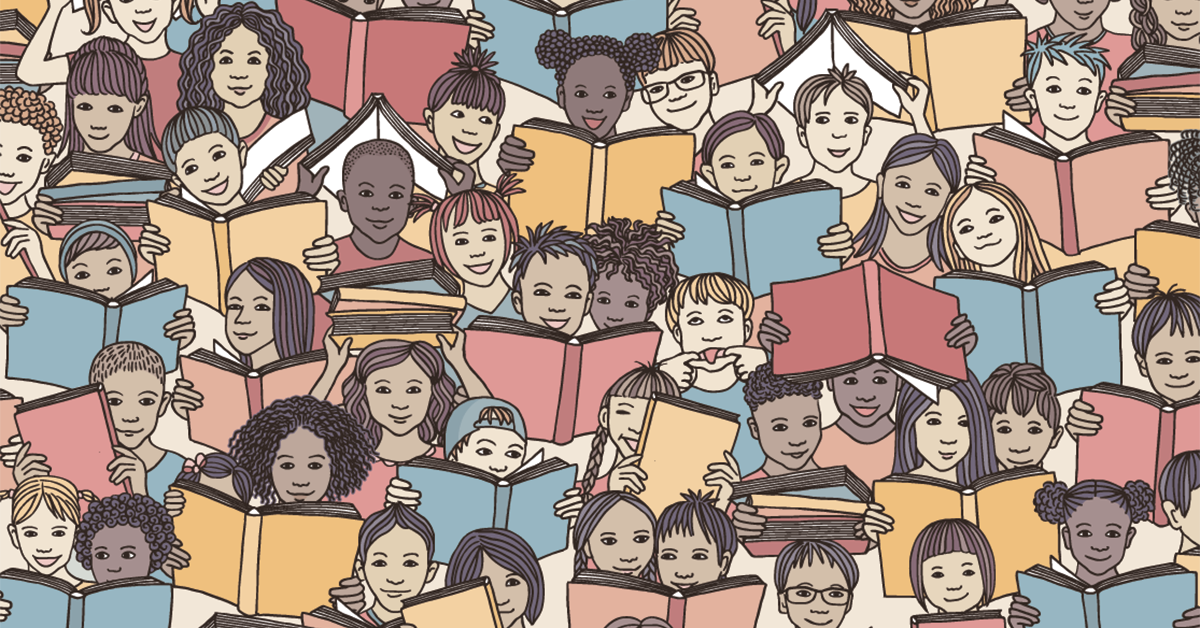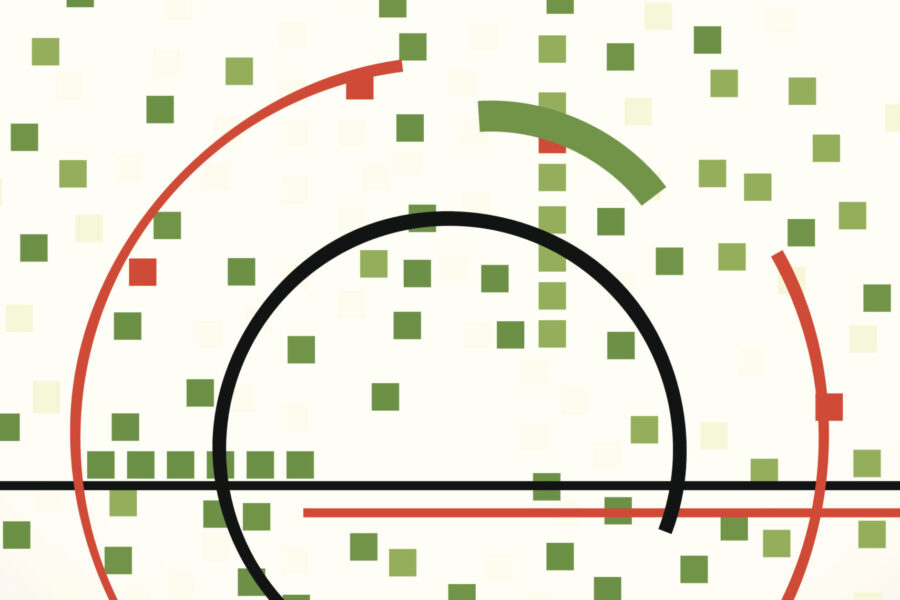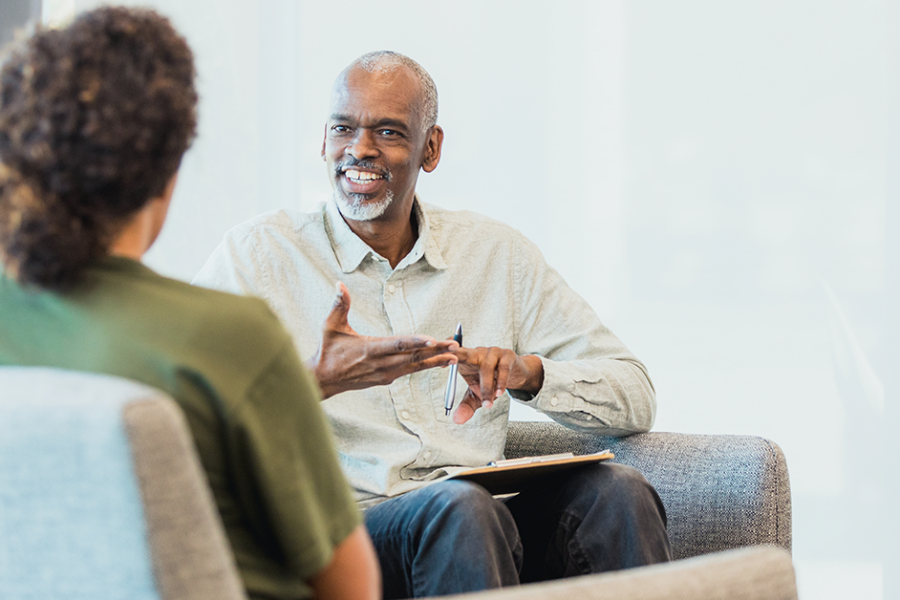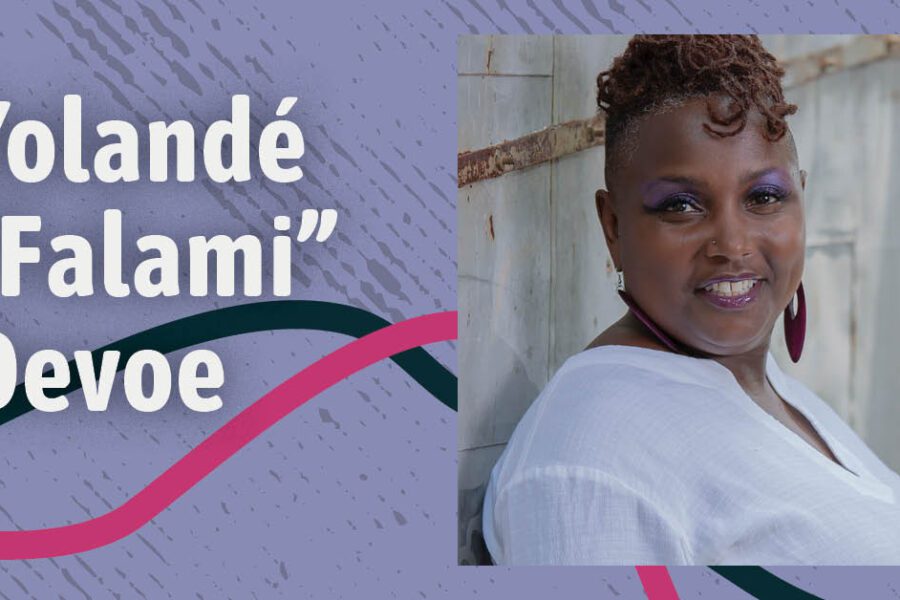When the Doctor of Education (EdD) program at Antioch Online added a new Multicultural and Anti-Racist Education Specialization earlier this year, Michael Raffanti, the Dean of Antioch’s School of Education, was confident the program would attract the students for whom this specialization was a perfect fit. But he didn’t know that it would swiftly grow to be the EdD’s most popular specialization, and he couldn’t know exactly how important it would prove to its students. He recently put me in contact with four current students, so that we could learn more about how students are using the Multicultural and Anti-Racist Specialization to advance their study and pursue their dreams.
Across my conversations, it was obvious that this subject’s importance has been highlighted by an emergent protest movement and a pandemic that has exacerbated wealth and health inequities. “One of the things that’s really cool about our concentration is that it’s so timely,” says Christen Johnson, a current student in the specialization. “There’s so much that’s happening in the world right now that we can use exactly what we’re reading about and translate it to discussing the issues that are happening in the news right now.”
These students describe a vibrant specialization where they engage in shared seminars and individualized work as they consider advantages as well as critiques of both multicultural and antiracist educational frameworks. “We’re learning how to transform trauma into love. For me, that’s the ultimate form of liberation,” says another student, Camaron Miyamoto. “To be able to be in a program with other like-minded folks who want to challenge each other to come up with the best practices to transform trauma into love and liberation is an exciting opportunity.”
What might be most remarkable, though, is the way that these four students each are using the specialization to build specific knowledge and address the questions that—because of their life stories, work histories, and personal interests—they see most urgently impacting their lives and the lives of their communities. As another student, Nina Bolton says, “Antioch teaches to you and to your core values.” In the particulars of these students’ stories, the transformative potential of this program becomes visible.
I. A Medical Education Reformer
For Christen Johnson, the EdD provides a platform to study and question the way that medicine is taught in the US—something that has fascinated and troubled her since she herself went to school to get her MD. It was during that experience that she started to truly understand the twin ways that underserved communities are failed by the medical system: both as patients and as potential medical professionals. This realization eventually led her to pursue what will be her second doctorate, an EdD at Antioch.
During medical school, Johnson specifically came to see the way that microaggressions permeated the learning experience, from hostile comments to casual stereotyping of minority patients. In the traditional, competitive, apprentice model of medical education, she explains, “You’re taking 100-plus of the most type-A, highly intelligent people you possibly can, and sticking them in a room, and making them all feel inferior to each other at the same time. It’s a boiler pot, and then you’re wondering why certain things are being said.” And these microaggressions and casually racist comments add up, harming patient outcomes and pushing future doctors from underrepresented minorities out of the profession.
Johnson began working to reform this flawed education system while still a student in it. She became national president of the Student National Medical Association—the oldest such association for students, which focuses especially on underrepresented minority students. For her own research, she focused on Native American populations whose health had been damaged by uranium exposure. And she collaborated with students at other medical schools to conduct a research project looking at microaggressions experienced by medical students of color. (That research resulted in a paper that was published earlier this year.)
Coming out of the many years of schooling and residency that go into finishing training as a doctor, Johnson was passionate about continuing her work to reform medical education, but at the same time she did not necessarily want to just sign up for yet more schooling. She considered several EdD and PhD programs, but none precisely matched her interests. Then, one night as she lay in her hammock—her preferred living room furniture—she decided to Google social justice EdD. The first hit was Antioch. “And I started reading,” says Christen, “and I was like, this is exactly what I’ve been waiting for.”
She says that she’s getting the degree not to “just have another doctorate but more so proving that I had the education to make the changes and serve the population that I wanted to serve.” She is focusing her work on making a difference in the area of medical education. At the same time, she’s working as a doctor at a federally-qualified health center in Columbus. But despite the busyness of working while also studying, she’s enthusiastic about where her path has taken her. “I feel like this program specifically has given me the tools I need to be able to really change the culture that is causing the social justice issues we’re seeing in medicine right now,” she says. “And I don’t think I would have found that anywhere else.”
II. Returning to School to Expand Career Helping LGBTQ+ Hawaiians
Johnson’s sense of mission is shared by so many students in the Multicultural and Anti-Racist Education Specialization. For instance, Camaron Miyamoto has always centered underrepresented communities and social justice movements in his work. As the longtime director of the Lesbian, Gay, Bisexual, Transgender, & Queer+ (LGBTQ+) Center at the University of Hawai’i at Mānoa—which for years was the only resource for people identifying as LGBTQ+ in the entire state—Miyamoto gets to see daily the power and potential of education to transform culture. Today he is sharpening those skills in the EdD.
For Miyamoto, working on the degree is partially motivated by career goals. As the LGBTQ+ Center’s director, he is a tenured faculty member of the University of Hawai’i. But without a “terminal degree” (like a PhD, EdD, or MFA), he lacks the highest qualification to teach. This became more apparent when he recently was invited by the Ethnic Studies Department to help create a course in queer and māhū, or third gender, people in Oceania. “It was really exciting to develop and create that class and teach it,” says Miyamoto, who initially came to Hawaii to pursue a PhD and become a professor before choosing to devote himself full-time to community activism, eventually organizing campaigns around Indigenous land rights, bilingual education, Hawaiian sovereignty, and gay liberation. This organizing work led to his position at the LGBTQ+ center and now, circuitously, back into the classroom, where he has continued to teach and assist with this ethnic studies class that is specifically geared for underrepresented communities in Hawaii. “And,” he says, it has “reignited my passion to teach.”
Studying for his EdD is giving Miyamoto structure and guidance as he considers questions that have preoccupied him for decades. Last semester he dove deeply into the work of Gloria Ladson-Billings, a pedagogical theorist who has contributed to Critical Race Theory, and whose idea of Culturally Sustaining Pedagogy especially resonated with Miyamoto. “It’s so exciting,” he says, because these theories “completely jettison the idea of our cultures as marginalized people having cultural deficits, and instead [they] challenge us to look into what are the things that exist in our cultures that have allowed us to thrive for centuries under oppression.”
Miyamoto’s studies in the EdD are immediately relevant in his teaching today, but he sees the work that he and his classmates are doing as part of a bigger project. “One of the things that’s really exciting and affirming for me,” he says, is “to be in a cohort of people who are committed and like-minded around social justice issues—and who not only are committed to creating a better world together but are excited about creating critical dialogue and doing cutting-edge research around it.”
III. Studying the Structures of Poverty
For Nina Bolton, the EdD offers an ideal environment for exploration and discovery directly around the questions that most demand her attention. As she explains, “The reason why I chose this program—specifically the Multicultural and Anti-Racist Specialization—is because my focus for the past three years… has been looking at the structures of poverty.” This is a very personal mission for Bolton, who herself grew up in poverty very much created by racist policies and politicians. But ultimately, she sees her education as an opportunity to study and challenge these patterns at the root. She approaches her studies in the EdD as an opportunity for “a full analysis, full examination of how to not only break this structure but to dismantle the structure.”
Bolton was born and raised in the Nickerson Gardens housing projects—the largest public housing project west of the Mississippi River, situated in the historically Black neighborhood of Watts, which has long been one of Los Angeles’ most impoverished. “It was very hard,” she explains, to grow up in those circumstances. And this difficulty was compounded when, at age sixteen, she had her first child, followed soon by two more. “My struggle was, I will say, very damaging—emotionally, psychologically, and physically,” says Bolton.
Bolton’s path out of gripping poverty and into activism against it began when Bolton was 32. As she describes it, “I just made the decision that I couldn’t take it anymore.” She enrolled as a student at a community college, Los Angeles Southwest College, and upon graduating with her associate’s degree, she enrolled in a BA completion program at Antioch Los Angeles.
For Bolton, studying at Antioch was transformative. This was the first time in her life, she says, that “I was asked for my opinion and for my contribution.” She ended up staying at Antioch to complete her master’s degree, and then, three years later, she chose to return for the EdD. “I’m a real Antiochian,” she says. “And you know why? Because it was in the framework of me understanding how to use critical thought processes [that I] broke that cycle of routine thinking.”
In the EdD, Bolton is continuing her study of the causes and effects of oppression. “Let’s look at the impact of education,” she says. “Let’s look at the impact of poverty. Let’s [come] into a new understanding of why certain groups of people, especially marginalized African-Americans, are still without adequate housing, still without adequate food, still without adequate knowledge and education.”
In all of this, Bolton is preparing for her most in-depth academic work yet: researching and writing her dissertation. The plan is for it to explore the structures of poverty—and ways out. It’s work that Bolton has devoted her life to, and that she hopes to continue as an author and community college professor once she finishes the degree.





